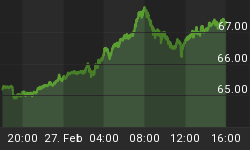Milton Friedman taught us that the real economic cost of government is not how it raises its funds - taxes or borrowing -- but how many funds in toto it raises. That is, according to Friedman, the real economic cost of government is how much it spends. The pending legislation on the increase in the U.S. public debt ceiling dictates that federal outlays be reduced in the coming 10 fiscal years. So, the editorial board of the WSJ should be ecstatic about the outcome of this debate about the debt-ceiling increase, right? Federal spending will be decreased. But I suspect that very shortly the op-ed page of the WSJ will be complaining about this pending debt-ceiling legislation. What will be the nature of these complaints? That the legislation did not cut federal outlays enough? Of course. But more than that, the editorial board of the WSJ will be livid over the fact that marginal tax rates on personal income will be rising, beginning January 1, 2013. Unless Congress passes legislation and President Obama signs legislation to the contrary, the Bush 43 marginal personal income tax rates will revert to those that prevailed at the end of the Clinton administration. So, if the economy does not pick up between now and November 2012, mark my words, the op-ed page of the WSJ will be full of commentaries blaming the coming January 2013 tax rate hikes for this sorry state of economic affairs. I still am waiting for the editorial board of the WSJ to explain why the increase in marginal tax rates in 1993 were not associated with ensuing inferior economic performance and the decrease in marginal income tax rates, including those on capital gains and dividend income, starting in 2001 were not associated with ensuing superior economic performance. But let me guess. When the marginal tax rates went up in 1993, it was expected that surely the next president who took office in 2001 would reduce these tax rates. Similarly, because the lower tax rates that commenced in 2001 were due to expire at the end of 2010, it was expected that the rate structure would revert to that of 1993. You can explain anything by introducing unmeasureable "expectations" and "uncertainty."















